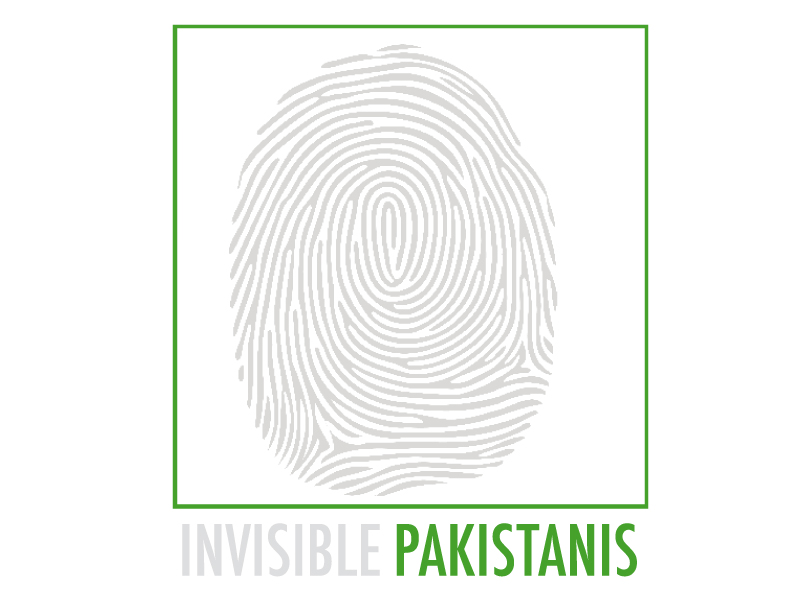
Shireen doesn’t know when she was born. She doesn’t even remember the birth dates of her children.
Without a birth record, she is ineligible for a Pakistani national identification card. Shireen – in the national database – does not exist.
“We are not educated like the rich who believe in ID cards and birth certificates. I don’t even know when my children were born. How can I register?” she asks.
The National Database and Registration Authority (NADRA) issues computerised national identity cards (CNIC) to registered citizens. A NADRA helpline official explains that a proof of birth is required for a complete CNIC application.
For illiterate citizens like Shireen, the process is laborious and cumbersome. They have to oscillate between government offices and spend money on paperwork. For them, it is easier to live a life in the shadows.
However, a few initiatives, incentives and marriage are surprisingly motivating people to register.
Benazir Income Support
A government welfare scheme proved efficacious. The cash grants distributed by the Benazir Income Support Programme (BISP), launched in 2008, are an incentive for people to register for CNICs.
“Our potential beneficiaries translate into permanent beneficiaries once they overcome the hiccup of identity verification. The number keeps increasing. People are applying for CNICs mainly for this programme,” an official at the BISP headquarters explains.
BISP reaches out to its beneficiaries through “communication campaigns” that are especially designed for the area they are targeting. Encouraging people to obtain CNICs for eligibility is one of the points on the agenda.
Shah Jehan begum, a 48-year-old resident of Liaqatabad, Karachi, says the CNIC has brightened her family’s future. She supports seven daughters and three sons through her BISP-sponsored monthly cash grants.
Recently, she won a cash grant of Rs300,000 to start her own business. When she received her first installment of Rs150,000, she proudly says holding her identity card, “The CNIC is what led me to all this support.”
Similarly, Muhammad Naseem and his wife believe that a CNIC was the key to getting cash grants. “Our clothing warehouse gets cash injections from BISP. Everyone should be registered. It has so many benefits!”
Burden on the economy?
NADRA claims to have printed over 95 million CNICs, which accounts for over half of Pakistan’s population of 180 million. The inter-city, urban-to-rural migration makes the population count arduous.
Shamim returns to her village in south Punjab during the cotton-picking season for work. She contributes to the economy through her labour, albeit without a record. Thus, her work and her existence go unaccounted for.
Fiza Farhan, the CEO of Islamabad-based Buksh Foundation, is currently working on energy-related projects in villages to bolster agriculture and power projects. But dealing with unregistered citizens is a major hurdle.
“We have to go on to the field ourselves to compile statistics as there is no data to rely on. Also, we meet plenty of families that deserve micro-financing opportunities and are credit-worthy. But the only thing that bars us from lending to them is the missing CNIC,” she says.
“The government should ensure new births are registered so that we can have a more formally structured economy.”
Without an identity card, people are not eligible to bank loans, they cannot buy property, nor can they participate in a business transaction. Moreover, they cannot even get married.
Matrimonial misgivings
“My sisters would not be able to get married without a CNIC,” says Muhammad Aslam, a 28-year-old driver, who promptly went to get his sisters registered as soon as he found out.
Margaret has a more sombre story. She was married to a Muslim in 2009 for which she changed her name on the nikkah-nama, the Muslim marriage contract, to Marium. As her birth certificate says Margaret and her marriage contract says Marium, she is two different people on paper. “It is impossible for me to get help at a NADRA office.”
Published in The Express Tribune, August 21st, 2013.
COMMENTS (5)
Comments are moderated and generally will be posted if they are on-topic and not abusive.
For more information, please see our Comments FAQ

















a good idea to look at those who can be ignored
Shah Jehan begum, a 48-year-old resident of Liaqatabad, Karachi, says the CNIC has brightened her family’s future. She supports seven daughters and three sons through her BISP-sponsored monthly cash grants. At this time having 10 kid is just unbelievable. Having one son & providing him best education is uphill task. 20 year ago decided not to have 2nd baby due to same reason. His average monthly cost of education is about $5000.00 a month, which is mammoth money.
The process should be made VERY easier, may be one time data center, with thumb scans, and etc etc data required by several departments for a persons life. May be a mobile van to give people a fast and easy service. Can we use technology to determine birth dates and age etc. When trees dates can be determined why not humans?.
I think such people just need guidance .. when NADRA ask about birth certificate it doesnt mean that they are asking for original certificate obtained at the time of birth .. she can get birth certificate from local union council based on her fathers/mothers/brothers/sisters/sons/daughters identity card ..
Eloquently written. I can't understand why Pakistan not still able to keep the record of illiterate individuals, we have entered in the century that now our country should manage such problems, even in foreign countries there are illiterate communities/individuals but their data are saved in proper way, so why not in Pakistan. Indeed very sad situation.